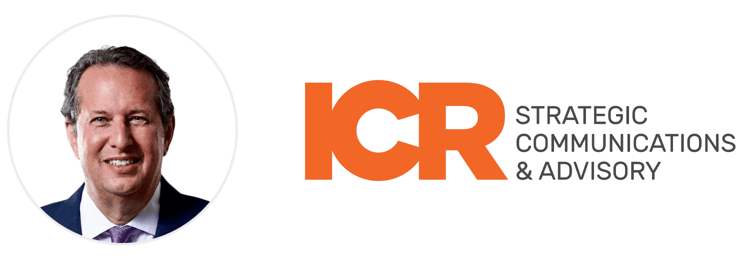New Developments in the Private Capital Markets Require Better Preparation, Longer Lead Times, Experienced Advisors, and Openness to New Structures for Growth and Late-Stage Private Companies
The IPO market has been awfully quiet over the past 18 months. Potential issuers have seen reduced valuations, increased volatility, tougher operating conditions, and warier investors. However, while it is a bear market for IPOs, the need for capital to fund business growth cannot simply go into hibernation. Therefore, many private companies have turned to Private Capital Markets (“PCM”) to raise proceeds for employee liquidity initiatives, working capital, and future growth plans.
Similar to the public markets, the environment for raising private capital also has seen its challenges. With rising interest rates and slowing growth, investors are rightfully concerned about the path and timeline to profitability, unit economics and cash flow, and the prospect for future liquidity events. When valuations were very high and interest rates were very low, issuers typically raised either straight equity or straight debt, and many companies chose not to engage an investment bank to assist in the raise as there was substantial demand from traditional growth equity or crossover investors. While some of these investor groups have retrenched meaningfully, other investor types have entered the market to provide solutions. Many late-stage investors have turned to hybrid convertible structures that combine equity upside with debt to provide greater certainty around a target ROI.The shifting sands that have changed the landscape for growth and private equity, as well as within the investment banking industry, have also introduced a new level of complexity to the PCM fundraising ecosystem. The result has made the process far more challenging for issuers and has given rise to the need for a different approach when embarking on a process. Of particular note, it is often taking longer to raise growth and late-stage capital, and the likelihood of success is much more dependent on high-quality preparation, selecting the right advisors, understanding the various alternative structures, and identifying potential investors.
It is increasingly important to utilize an advisor that can assist with this complex process and help increase the likelihood of a successful outcome. We think about the rising complexity of raising private capital in three areas that need to be contemplated: investor groups, structures, and investment banking partners:
Investor Groups: What was once a fairly straightforward and familiar cadre of potential investors that aligned clearly with a Company’s level of maturation has changed meaningfully.
- Many PE and VC funds have raised separate pools of capital to invest in growth equity.
- Large funds have emerged outside the traditional Bay Area, New York, and Boston capital centers.
- Sovereign funds have become more active in Private Capital.
- Existing crossover investors have pulled back meaningfully, while new ones have emerged.
- Senior investors from some of the largest firms have left to start their own funds.
Deal Structure: Companies and their Boards must now consider a broader array of alternatives to meet their goals, and investors are asking for more in return.
- Companies must consider hybrid convertible and debt structures along with equity, in addition to more punitive liquidation preferences and covenants.
- Investor focus for late-stage private companies has shifted to unit economics and profitability alongside growth, and many investors are seeking a higher level of clarity on a future exit, and over a shorter time frame.
- Many companies must consider flat or down rounds with an eye on employee retention and liquidity.
- Diligence is taking longer and the volatile markets require companies to sharpen timing, disclosure, and requirements.
Investment Banking Partners: In healthy markets, where identifying and securing prospective investors is much easier, private companies often executed capital raises without the assistance of a banker. In the current market, an experienced advisor is increasingly common, and selecting the best partner becomes a critical final piece of the puzzle, presenting new considerations for many Management Teams and Boards.
- It is critical to assess the domain expertise of the advisory team and the direct experience of the proposed team, ideally in similar transactions. It is also important to clearly understand banks’ relationships with prospective investors, particularly ones that are outside of your existing network.
- In some cases, the bank that is best for your private capital raise may be different than the one that is best for an IPO or M&A process.
- There is a range of complex considerations in executing a formal agreement with the bank – some of which can have significant future implications – and it is important to fully assess the implications and pros/cons of each.
- Finally, the actual process involves coordinating the activities and timelines of multiple parties within the bank, the company, and its other advisors. Having an experienced conductor to ensure everyone is on the same song sheet is no easy task but contributes meaningfully to an optimal fundraising outcome.
All these issues require preparation, relationships, and detailed knowledge of what is happening in the current market. A PCM Advisor can ensure that the right banking partner is selected, help negotiate relationship terms that are based on precedent, and be an independent voice on the right investor outreach, process, and terms while serving as the conductor of this highly orchestrated process. If the choice is to not engage a bank, an advisor can add muscle, data, and relationships at a low cost to the issuer.
Well-placed capital markets advisors see trends, common denominators, and best practices across dozens of transactions that yield critical insights in each of these areas that can help clients navigate uncharted waters and achieve highly successful outcomes. There are exciting new opportunities for companies looking to raise capital, and with the right guidance and insights, they can be successful.

Jeff Bernstein is a Managing Director with ICR Capital, LLC, which provides a full suite of capital markets advisory solutions to private and public companies.
ICR Capital, a wholly-owned subsidiary of ICR, provides capital markets advisory services that assist private and public companies seeking to execute IPOs, follow-on offerings, convertible transactions, block trades, private capital raises and, other capital markets activities. To visit ICR Capital, click here.
Learn more
Discover Business Wire’s suite of investor relations services
Download Best Practices for Enhancing Earnings Releases
See what financial earnings and comic books have in common
Get the latest PR, IR, Marketing and Media tips on the Business Wire Blog. Subscribe today!





